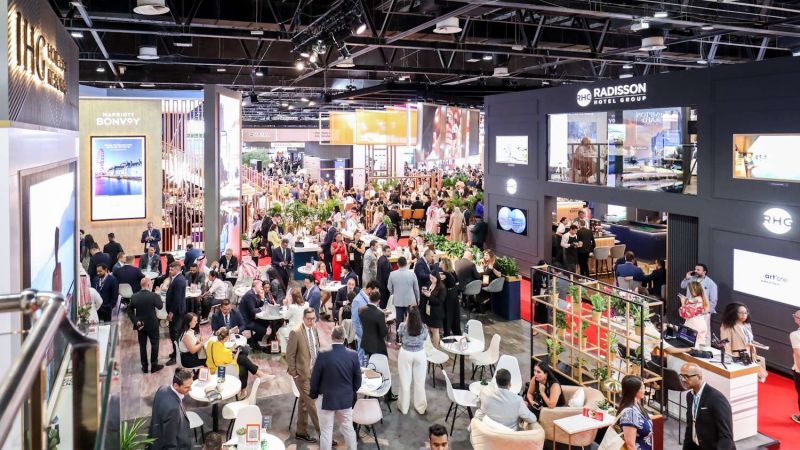The future of luxury travel is personal. That was the clear message from industry leaders at Arabian Travel Market (ATM) 2025, where senior executives from Marriott, Fairmont, and Minor Hotels came together to discuss the accelerating shift toward hyper-personalisation in high-end hospitality.
Gone are the days of standardised five-star service. In its place, a new era is emerging—one where experiences are curated to individual guest desires, often before they’re even voiced. According to the ATM Travel Trends Report 2025, released in collaboration with Tourism Economics, 85% of hoteliers now view personalisation as a core commercial priority, with tailored offerings linked to revenue increases of up to 5%.
The panel of experts, which included Nicolas Hauvespre (VP of Luxury Brands, MEA Marriott), Loay Nour (VP Fairmont Brand and Marketing Communications), and Amir Golbarg (SVP Minor Hotels), highlighted how brands are combining AI-powered tools with human-centric approaches to redefine the luxury guest journey.
“Hyper-personalisation goes far beyond name recognition or stored preferences,” said Nour. “Today’s luxury guests are exposed to ultra-customised experiences across industries, and their expectations have evolved. Understanding both what’s said—and what isn’t—is now essential.”
The speakers emphasised that while technology enables customisation at scale, emotional intelligence remains key. Guests may appreciate an algorithmically suggested meal, but what leaves a lasting impression is a staff member remembering their child’s favourite dessert or anticipating a specific room fragrance.
Marriott is already applying this strategy at properties like the Ritz-Carlton Reserve at Nujuma in Saudi Arabia’s Red Sea region, blending cultural immersion with anticipatory service. The brand also has curated Ritz-Carlton safari lodges planned in eastern Africa—designed to pioneer hyper-authentic, personalised guest experiences in new destinations.
Similarly, Minor Hotels is harnessing its agile ownership structure to innovate at speed. Its boutique Anantara Santorini Abu Dhabi property in Ghantoot, with just 22 rooms, has reportedly exceeded performance expectations thanks to its tailored, experience-first approach.
A market forecast by Future Market Insight Inc. suggests that the global personalisation in travel sector will reach USD 620.71 million by 2032, signalling a steady climb for the trend worldwide.
“Luxury is becoming deeply individual,” said Danielle Curtis, Exhibition Director ME at Arabian Travel Market. “It’s not just about elegance—it’s about relevance. We’re seeing travel brands evolve to meet guests on a personal level, offering experiences that reflect who they are and what they value.”
Looking ahead, Arabian Travel Market 2026, scheduled from 4–7 May at Dubai World Trade Centre, will spotlight luxury travel’s transformation. Alongside, travel technology will remain a central theme, as innovation continues to redefine how journeys are imagined and delivered.

